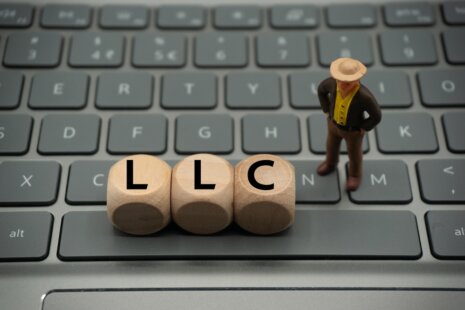Whether it’s better tax-wise to operate as a sole proprietor or form an LLC (Limited Liability Company) depends on various factors, including your specific business circumstances, income level, and tax objectives.
Knowing The Difference in Business Structures
Sole Proprietorship:
- Simplicity – Operating as a sole proprietorship is generally simpler and involves fewer administrative requirements compared to forming an LLC. There are no formal filing requirements or annual fees associated with being a sole proprietor.
- Pass-Through Taxation – Like an LLC, a sole proprietorship is a pass-through entity, meaning business profits and losses flow through to the owner’s personal tax return. The business itself does not pay taxes; instead, the owner reports business income and expenses on Schedule C of their personal tax return.
- Self-Employment Taxes – Sole proprietors are subject to self-employment taxes, which cover Social Security and Medicare taxes for self-employed individuals. The self-employment tax rate is currently 15.3% (12.4% for Social Security and 2.9% for Medicare) on the first $142,800 of net income (as of 2021). This rate applies regardless of whether the income is retained in the business.
LLC (Limited Liability Company):
- Limited Liability Protection – One of the primary benefits of forming an LLC is limited liability protection, which helps shield personal assets from business liabilities. This means that in most cases, the owners (called members) are not personally responsible for the debts and obligations of the business.
- Flexibility in Taxation – By default, an LLC is taxed as a pass-through entity, similar to a sole proprietorship. However, LLCs have the option to elect corporate taxation (C-corp or S-corp status), which can offer certain tax advantages in specific situations, such as lower self-employment taxes for S-corporations.
- Additional Tax Deductions – LLCs may have access to certain tax deductions not available to sole proprietors, such as deductions for health insurance premiums, retirement contributions, and certain business expenses.
- Complexity and Costs – Forming and maintaining an LLC typically involves more paperwork, formalities, and costs compared to operating as a sole proprietor. This includes filing articles of organization, paying state filing fees, and complying with ongoing reporting and record-keeping requirements.
The choice between operating as a sole proprietor or forming an LLC depends on factors beyond just tax considerations, such as legal liability, business goals, and long-term plans. It’s advisable to consult with a tax advisor or attorney who can provide personalized guidance based on your specific situation.




